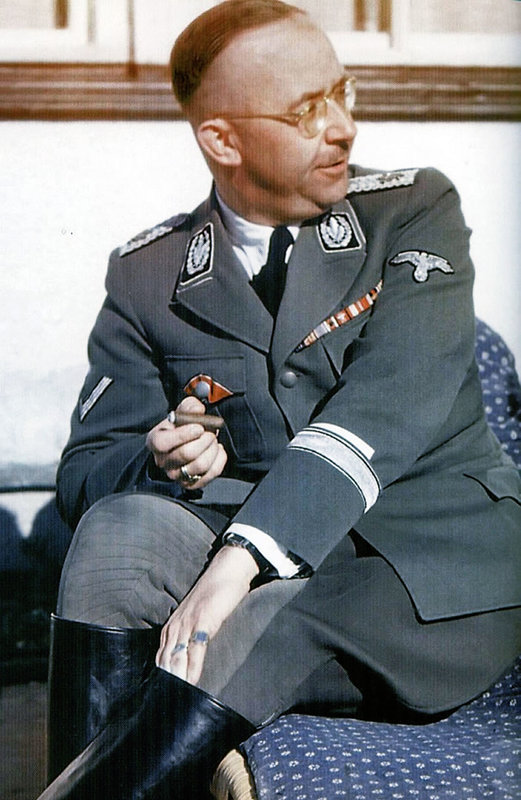Heinrich Himmler: The Architect of Nazi Atrocities

Heinrich Himmler (1900-1945) was one of the most influential and notorious figures within Nazi Germany. He played a key role in the implementation of the Holocaust and the organization of the SS (Schutzstaffel), a paramilitary organization responsible for many of the Nazi regime's crimes.
**Early Life:
Heinrich Himmler was born in Munich, Germany, in 1900. He served as an officer during World War I and later studied agriculture and economics. His early life seemed unremarkable until he joined the Nazi Party in 1923 and became an early member.
**Leadership in the SS:
Himmler's rise to power began when he was appointed to lead the SS in 1929. Under his leadership, the SS grew from a small paramilitary unit into a formidable force that encompassed various branches, including the infamous Waffen-SS, responsible for military operations.
**Implementation of the Holocaust:
One of the most chilling aspects of Himmler's legacy is his central role in implementing the Holocaust. As the head of the SS, he oversaw the construction and operation of extermination camps like Auschwitz and played a direct role in the systematic murder of millions, including Jews, Romani people, and other minority groups.
**Control of Police and Concentration Camps:
Himmler also held positions of great power within Nazi Germany, including Chief of German Police. This allowed him to exert control over the police force and the concentration camps, where countless prisoners suffered and died under inhumane conditions.
**Beliefs and Ideology:
Himmler was a staunch supporter of Nazi ideology, including Aryan supremacy and the elimination of perceived racial enemies. He was deeply committed to the idea of a racially pure Germanic society, which he believed could only be achieved through mass murder and extreme brutality.
**Attempted Negotiations and Defeat:
As the Allied forces closed in on Germany toward the end of World War II, Himmler attempted to negotiate with the Allies but was ultimately unsuccessful. In the final days of the war, he was captured by the British. Fearing capture, Himmler committed suicide by ingesting a cyanide pill while in British custody in May 1945.
Heinrich Himmler's life is a stark reminder of the horrors of the Nazi regime and the atrocities committed during World War II. His actions as a chief architect of the Holocaust and his leadership within the SS make him a symbol of the darkest chapter in human history.
---
Heinrich Himmler's role in the Nazi regime is well-documented, and his name is associated with some of the most reprehensible crimes committed during World War II.



/image%2F0404232%2F20240516%2Fob_424467_black-simple-success-motivational-quot.png)
/http%3A%2F%2Fblogger.googleusercontent.com%2Fimg%2Fb%2FR29vZ2xl%2FAVvXsEjvvbvxN2VUVo0L1hyphenhyphenn_V_czDakFQ0ChTEFZd6IjOzTzPVr7VUVQhoohPVbEZVcbyucAhxZmaEjoYnD05gx25QmuFZLVGgmsjoBsXsEdsdfIJM9Aw1ajTcYiUxQFXGBsraumRIIFBezBG-M3C5RRQ91U_f844USAafeWYT-wDtrYdVXRn0%2Fs220%2FIMG_9943.JPG)
/image%2F0404232%2F20240515%2Fob_33e32e_black-simple-success-motivational-quot.png)
/image%2F0404232%2F20240515%2Fob_3f3f86_pink-black-minimalist-bold-inspiration.png)